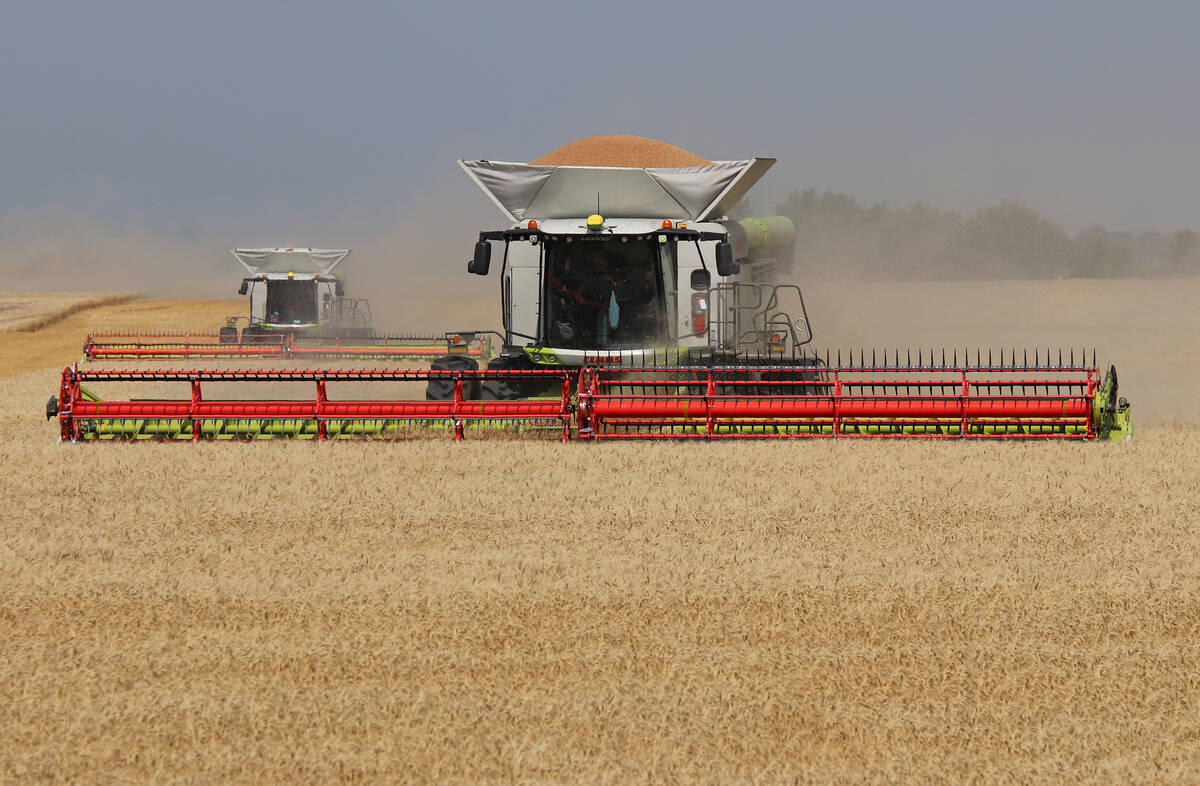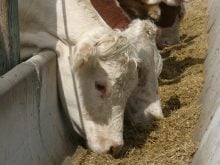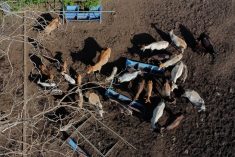SASKATOON – Lower grain handlings have taken a substantial bite out of Saskatchewan Wheat Pool’s earnings in the first half of 1995-96.
However the company says that by the end of the year, net earnings will be ahead of 1994-95 results.
The pool last week reported pre-tax earnings of $30.48 million for the period ending Jan. 31, down almost 10 percent from $33.74 million during the same period the previous year.
“It’s due pretty well entirely to grain volumes,” said chief financial officer Lyle Spencer, adding that with a smaller crop in 1995 and lower inventories to start the year, the decline is no surprise.
Read Also

China’s grain imports have slumped big-time
China purchased just over 20 million tonnes of wheat, corn, barley and sorghum last year, that is well below the 60 million tonnes purchased in 2021-22.
The company handled 1.2 million tonnes less grain at country elevators in the first six months of the year, while receipts at the pool’s export terminals at Vancouver and Thunder Bay were down by 42 percent.
Sales and operating revenue for grain handling and marketing werw down eight percent to $1.32 billion, while earnings from those activities declined by more than $13 million to $30.29 million.
Farm supplies up
Total sales and revenue for the first half of the year were up slightly to $1.85 billion from $1.83 billion, thanks in large part to improved sales of farm supplies, particularly fertilizer, and increased earnings from food processing operations.
Chief executive officer Don Loewen said the results point out the importance of the pool’s strategy of diversifying into value-added processing and other related ventures.
Net earnings were down sharply in the first half of the year to $17.2 million from $26.2 million, due mainly to a change in the company’s method of accounting for income tax. The Aug. 1, 1994 change resulted in a substantial one-time reduction in taxes for 1994-95. As a result, the tax bill for the first six months of this year almost doubled to $13.2 million.
Loewen said net earnings for 1995-96 should be considerably ahead of last year’s $32.6 million, when the bottom line was held down by special provisions for costs associated with elevator closures and the cleanup of a fertilizer plant in Calgary.
Earnings from farm supplies and grain handling usually pick up in the last quarter of the fiscal year, he said, as farmers deliver more grain and buy more crop inputs.
The release of a six-month financial statement is a new practice for the pool, prompted by the company’s transformation into a publicly traded company.
Pool shares are expected to be listed on the Toronto Stock Exchange in early April.














